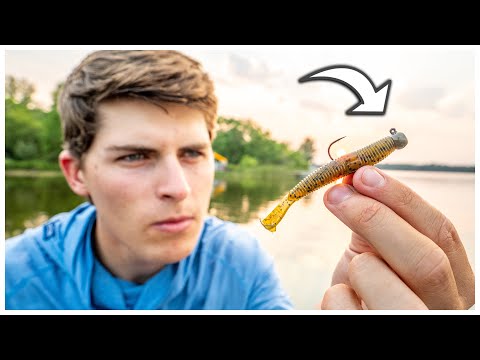Winter Fishing: The 3 Hottest Bites When the Weather Gets Cold
Catching big fish in the dead of winter isn’t usually easy. I don’t really care where you live. Florida Keys, you say? Sure, it’s much warmer there in February, but it’s still winter, which means it’s often windy and rough. Gulf Coast? Same problem. There are plenty of bull redfish there for the taking, but in my experience if you book three days of fishing, you’ll be lucky to get out for one. Some of you, of course, have the means to travel to far-flung warm destinations in winter, but many of us—myself included—don’t.
Still, if you live in the northern half of the country, there’s no need to hang up the freshwater gear. There are plenty of options for giant fish between Christmas and spring. If it’s genuine trophies you want this time of year, these three species offer the best odds. Not only do they maintain peak weight in winter, buyt in some cases they’re easier to catch now than during tank top season.
Lake Trout
Top Destinations: Niagara River, New York (open water), Lake Granby, Colorado (ice fishing)
In the summertime when every ski boat and jet ski is ripping across the water, catching big lake trout can be a chore. These fish prefer cold water, which means during the warmer months they’re hanging out in the middle of lakes and reservoirs at serious depths. Catching them often requires trolling with downriggers just to get lures in front of their faces. But come winter, that all changes.
As water temperatures drop, lake trout will transition to shallower water. In fact, the biggest one I ever caught through the ice—a 44-incher—was hooked in only 3 feet of water. When I looked down in the hole, I could see the rocks on the bottom. Our guide explained that this shallow area was where all the small rainbow trout in the lake hung out, and that there was a steep drop-off not far away. The heaviest lakers, he explained, would shoot up from the depths, snatch a trout in the shallows and retreat. He was right. The fish we hooked in this location were huge, and they nearly dumped our spools after slamming 9-inch soft-plastic jigs.
Open-water opportunities are fewer and farther between in winter throughout the lake trout’s northern range, but there are a few to be found. Notably, the Niagara River in New York and a handful of other tributaries around the Great Lakes experience winter lake trout runs. These fish enter in fall to spawn but many winter over because there are steady food sources. Anything from swimbaits to egg flies to crankbaits can score these fish, and there’s no cooler way—at least, in my opinion—to catch a big laker than watching it slam a lure 4 feet off the bank while your feet are planted on terra firma.
Read Next: Best Lake Trout Lures
Blue Catfish
Top Destination: James River, Virginia
Catfishing is synonymous with summer. You camp out on the bank with a cooler, perhaps a radio, and enjoy a July evening waiting for rods to start bucking. The three most targeted species in this country are channel cats, flatheads, and blue cats. But while the first two can be difficult to catch once it gets really cold, the heaviest blues often come in the dead of winter.
Dedicated blue cat fishermen tend to prefer the cold season to the summer months. While the elements might make a day less comfortable, the fish become more predictable when the mercury drops. They’ll gravitate to deep holes and depressions within shallow flats, and while they’ll move around minimally, they’ll feed heavily. Because food sources become less available in winter, if you drop a fresh piece of cut shad in front of a laid-up blue cat, it likely won’t pass on the meal. Whether you have access to a boat or not, this winter pattern and behavior can make it easier for you to score a fish weighing 50 pounds or more.
Read Next: What Do Catfish Eat?
The trick is having electronics or a paper chart that shows you the bottom contour of the lake or river you’re fishing. This becomes critical in winter, especially from the bank, because location is everything. Ideally, you’ll have a milk run of spots to hit within close proximity, as bites usually come fast when you land a bait in front of the fish. Look for areas with channel edges or sharp drop-offs within casting range. Likewise, don’t be afraid to target areas where holes or depressions with as little as 5 feet of water are surrounded by a foot of water or less.
Muskies
Top Destination: New River, Virginia/West Virginia
Let’s get one thing straight: Muskies aren’t any easier to catch in the dead of winter than they are at other times of year. You can pinpoint their location within a moving water system much more easily right now, which is a major advantage. But that does not mean they’ll be eager to chew. What it does mean is that your lures, baits, and flies will have a stronger chance of landing in front of their faces.
While muskie seasons close in many parts of the North, southern states like Virginia and Tennessee remain open and become hot winter locations since their climates aren’t as frigid as other parts of the country. Waters in these regions also don’t ice over. But like many fish, muskies slow down significantly in cold water. They’re not as likely to travel far or burn a lot of energy to chase down your offering. The game largely consists of targeting eddies and any soft spots within the river where there’s little to no current.
Read Next: West Virginia Angler Catches (and Releases) Record Muskie from Shore
The best analogy I ever heard for muskie fishing in the winter went like this: If you put a tub of cheese balls next to someone and said, “help yourself,” they may or may not grab a handful. But if you yell, “think fast” and throw a single cheese ball at their face, they’ll probably try to catch it in their mouth. With that in mind, success in the winter muskie game is often about making lots of casts until you get in front of the right face. When you do, the fish will positively hammer that lure or bait.
The post Winter Fishing: The 3 Hottest Bites When the Weather Gets Cold appeared first on Outdoor Life.
We may earn revenue from the products available on this page and participate in affiliate programs. Learn More ›
Source: https://www.outdoorlife.com/fishing/three-species-for-winter-fishing/





